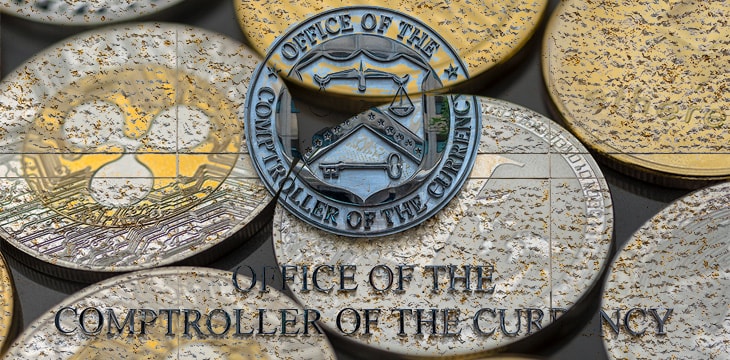
Regulators in the United States have given banks and financial institutions the authorization to hold reserves in stablecoins, opening up new opportunities for institutions to service the digital currency sector.
In an interpretive letter issued by the Office of the Comptroller of the Currency, national banks are now permitted to hold reserves of cryptocurrencies and other digital assets.
“We conclude that a national bank may hold such stablecoin ‘reserves’ as a service to bank customers.”
Acting Comptroller of the Currency Brian Brooks said that the measures reflect the reality for many national banks, which are already engaging in activities involving stablecoins.
“National banks and federal savings associations currently engage in stablecoin related activities involving billions of dollars each day.”
The letter gives the first confirmation that banks are permitted to engage in stablecoin business, and could be expected to encourage more institutions to develop their stablecoin reserves.
Since taking over the role of Acting Comptroller, Brooks, formerly of Coinbase, has been active in expanding the function of stablecoins within the U.S. banking system.
In July, a similar interpretive letter was issued confirming that banks were permitted to offer crypto custody services.
However, this week’s letter stopped short of a blanket endorsement of all stablecoins, saying that this only applied to stablecoins backed 1:1 to a currency, rather than those backed by a basket of assets.
In particular, this would also exclude some versions of Facebook’s Libra token from being an asset institutions were permitted to hold in reserve.
Even stablecoins that are backed 1:1 are not without their controversy. Tether (USDT) originally said it was backed 1:1 with U.S. dollar reserves held in New York; however, the company that manages it has admitted that is no longer the case. An update on the Tether site’s text stated that “Every tether is always 100% backed by our reserves, which include traditional currency and cash equivalents and, from time to time, may include other assets and receivables from loans made by Tether to third parties, which may include affiliated entities (collectively, “reserves”).”
There has been ongoing controversy surrounding the use of reserves as working capital for Tether’s sister exchange Bitfinex, after the firm reported unexpected losses from its exchange business.

 09-22-2024
09-22-2024


